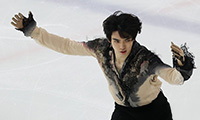▶ GAIL COLLINS
We talked about the grand saga of how the bad old days gave way to the women’s movement one afternoon while she was cooking lunch in the apartment on the East Side where she lived with her husband, Nick Pileggi. (She famously said that the secret to life was marrying an Italian, but, obviously, she meant the secret was marrying Nick.) When she worked as an intern at the White House, she recalled, she took a man who was her then-fiancé on a tour of the White House “past one fabulous room named after what color it was painted after another,” until at the end he looked at her and said: “No wife of mine is going to work in a place like this.”
The whole world is going to remember Nora for her books and essays and scripts and blogs and, of course, movie directing. A rather hefty chunk of the world is going to remember her as a dear friend, because she had armies and armies of friends. Really, you are talking Normandy Invasion of friendship. (Are there still going to be book parties in New York? It seems inconceivable. Nora defined New York book parties. She was really more the point than the actual books.)
I’m pretty sure she would also want somebody to point out that she was an ardent feminist. She could get a little wry about the more self-obsessed aspects of the movement at its height, like the meetings where everyone was required to bring mirrors and examine their private parts. (“It is hard not to long for the days when an evening with the girls meant bridge,” she wrote.) But she was a proud defender of the cause, supporter of younger women’s careers, and fearless in an industry that was not particularly welcoming of women in the director’s chair. Also, since she was so glamorous and stupendously witty, she was an excellent life lesson for some of the people who have been insisting for the last 90 years that feminists are dour and wear unattractive shoes.
Nora was a sort of universal organizer, giver of dinner parties, cheerleader of new projects. A while back, she co-founded the One-Time-Only Book Club, which gathered at her apartment to discuss “The Golden Notebook,” which most of us had been under the impression was one of our all-time favorites, until we read it for the first time in 30 years. The One-Time-Only Book Club actually did meet a second time, when we disagreed about “Mrs. Dalloway” and I thought Nora seemed a little frail. But she never said anything about being sick. I can’t, looking back, ever remember her complaining about any physical issue that could not be described with a joke, or at a minimum, deep irony.
Things I learned from Nora: The best restaurant in New York for calf’s liver. The way to behave when you’re in charge and you think other people might not really believe you know what you’re doing, even though you really do. The fact that John Edwards was having an affair. (“Look at how flushed his face is,” she said, pointing to a YouTube posting of the presidential candidate and his videographer chatting on a campaign flight.)
She was a master of multiple art forms. She was a fierce and loyal friend. In her later essays, she became her generation’s brilliant, brutal and funny chronicler of the aging of the pre-boomers. She totally transformed my opinion on the appropriate size of spoons.
Once, years ago, we made a list of things to worry about. Her No. 1 was George W. Bush. I mentioned global warming. “Not a middle-aged issue,” she said.
I was in Texas when she died, remembering that she had once made a movie in Austin and her entire crew got sick from an allergic reaction to cedar pollen. On the way into Dallas, my driver swerved to avoid another car and sort of flung me into the front seat. It was not very much of an accident at all, but I suddenly burst into a fit of loud weeping, scaring the poor man half to death. Nora could have turned this into a life lesson with an eminently quotable and totally true moral. Sniffling, I wondered what it would have been. Big girls don’t cry? The tendency of second- and third-string mourners to attempt to turn the grieving process into a story that’s all about them? She was so practical. It would probably have been about the critical importance of wearing seat belts.
스마터리빙
more [ 건강]
[ 건강]이제 혈관 건강도 챙기자!
[현대해운]우리 눈에 보이지 않기 때문에 혈관 건강을 챙기는 것은 결코 쉽지 않은데요. 여러분은 혈관 건강을 유지하기 위해 어떤 노력을 하시나요?
 [ 건강]
[ 건강]내 몸이 건강해지는 과일궁합
 [ 라이프]
[ 라이프]벌레야 물럿거라! 천연 해충제 만들기
 [ 건강]
[ 건강]혈압 낮추는데 좋은 식품
[현대해운]혈관 건강은 주로 노화가 진행되면서 지켜야 할 문제라고 인식되어 왔습니다. 최근 생활 패턴과 식생활의 변화로 혈관의 노화 진행이 빨라지고
사람·사람들
more많이 본 기사
- ‘길잃은’ 中 중남미정책…일대일로에 직격탄
- 세계 곳곳서 ‘美규탄’ 시위…마두로 아들 “거리로 나와달라”
- 트럼프 “우리가 베네수 맡고 있다…선거前 국가재건이 먼저”
- ‘국민 배우’ 안성기 별세…69년 연기 인생 마침표
- [美 마두로 축출] 트럼프 말대로 베네수 석유 증산할까…전문가 ‘글쎄’
- 코미디부터 예술영화까지… ‘천의 얼굴’로 스크린 누빈 안성기
- 美, 베네수 부통령에 압박 “마두로와 다른 선택하길”
- 베네수엘라, 세계 최대 매장량이라는데…국제유가도 영향받나
- 美 ‘유령 특수부대’ 델타포스
- [CES 2026] “CES는 미중 긴장완화 ‘가교’…스위스 같은 중립지대 지향”
- 이부진 호텔신라 사장 NBA 중계화면에…아들과 함께 미국서 휴가
- [한인 은행·업체 시무식 화보] “붉은 말 기운받고 한인 경제 도약에 기여하자”
- 현대차·기아·제네시스… 2025년 판매 역대 최다
- [美 마두로 축출] 마두로 베네수엘라 대통령, 5일 법정 첫 출석
- 故김영인 누구?..故송도순 이어 별세, 슬픔에 빠진 방송계
- [CES 2026] 6억달러 새단장한 우아한 전시장…내부엔 지게차 동원 개막준비
- 아이유♥변우석·지성·신하균·유연석.. ‘2026 MBC 연기대상’ 벌써 치열하다
- [美 마두로 축출] 미 곳곳서 반전시… 1
- 美, 직접통치아닌 압박통한 정책개입 가닥… “함포외교”
- [CES 2026] 우유 꺼내고 수건 개는 로봇…LG ‘가사 해방’ 속도
- 여야 새해도 극한대치… ‘종합·통일교특검’ 법사위 첫 戰場 예고
- [美 마두로 축출] 뉴욕 구치소 수감된 마두로… “좋은 밤이에요” 인사도
- [美 마두로 축출] 트럼프, 두번째 중대 군사작전…北이 받을 메시지는
- [美 마두로 축출] 트럼프 ‘서반구 패권’ 구상 본격화하나…중남미 긴장 고조
- 임재범, 은퇴 발표 “박수칠 때 떠나겠다”
- 20kg 빼고 아이돌 외모 되찾더니..강남, 기안84와 북극 마라톤 도전
- 젤렌스키 “이달 내로 종전안 놓고 美 정상회의 희망”
- 李대통령 “中, 한반도 평화 파트너…… 2
- [美 마두로 축출] 한밤 안가 급습 ‘확고한 결의’ 작전… “침실서 끌어내”
- 김병기, 경찰에 줄고발… ‘아들 취업… 1
- 美 경제석학 “韓 원화가치 매우 저평가…향후 회복할 것”
- ‘연프 중독’ 고준희, 눈 성형 고백에 풍자 “과연 눈만 했을까?” 의심
- ‘왕따 주행 논란’ 억울함 푼 김보름 “말로 담기 어려운 시간 지나...” 현역 은퇴 선언
- 영종도 인천공항 잇는 3번째 다리 내일 개통…요금 2천원
- 국힘에 ‘살려달라’고 문자 메시지?…이혜훈측 “전혀 사실 아냐”
- 美, 마두로 전격 체포·압송…트럼프 “정권이양까지 베네수 통치”
- [美 마두로 축출] 유엔 안보리, 5일 긴급회의…베네수 소집요청
- [美 마두로 축출] 체포된 마두로 부부, 뉴욕 도착…다음주 재판받을 전망
- “황희찬 시즌 최고의 퍼포먼스” 극찬, 웨스트햄전 1골·1도움 폭발... 울버햄프턴 ‘EPL 20경기 만에 감격 첫 승’
- [美 마두로 축출] 트럼프 “베네수엘라 부통령이 잘하면 미군 주둔 안해”
- 李대통령, 오늘 국빈 방중 출국…비핵화·한한령 ‘돌파구’ 주목
- 김병기 배우자 법인카드 의혹, 동작구… 2
- ‘에릭♥’ 나혜미, 두 아들과 일상 공개..짱구 볼살+붕어빵 눈매 “우리 강아지들”
- BBC “입소문서 시작한 K-뷰티, 전세계 스킨케어 루틴으로”
- [美 베네수 공격] 버스기사 출신 독재자… ‘차비스모’ 마두로의 몰락
- 美, 베네수 전격공격 마두로 축출…트럼프 “공격성공, 체포”
- [美 마두로 축출] 서반구·마약·석유…트럼프 작전배경의 세 키워드
- [美 마두로 축출] 베네수 부통령 “우리 유일한 대통령은 마두로”
- [美 베네수 공격] 본디 법무장관 “마두로 부부, 미국서 전면적 처벌받을것”
- ‘종합선수권 10연패’ 차준환, 3연속 올림픽행 “꿈의 무대... 모든 것 보여주고 오겠다”
1/5지식톡

-
 미 육군 사관학교 West Poin…
0
미 육군 사관학교 West Poin…
0https://youtu.be/SxD8cEhNV6Q연락처:wpkapca@gmail.comJohn Choi: 714-716-6414West Point 합격증을 받으셨나요?미 육군사관학교 West Point 학부모 모…
-
 ☝️해외에서도 가능한 한국어 선생님…
0
☝️해외에서도 가능한 한국어 선생님…
0이 영상 하나면 충분합니다!♥️상담신청문의♥️☝️ 문의 폭주로 '선착순 상담'만 진행합니다.☎️ : 02-6213-9094✨카카오톡ID : @GOODEDU77 (@골뱅이 꼭 붙여주셔야합니다…
-
 테슬라 자동차 시트커버 장착
0
테슬라 자동차 시트커버 장착
0테슬라 시트커버, 사놓고 아직 못 씌우셨죠?장착이 생각보다 쉽지 않습니다.20년 경력 전문가에게 맡기세요 — 깔끔하고 딱 맞게 장착해드립니다!장착비용:앞좌석: $40뒷좌석: $60앞·뒷좌석 …
-
 식당용 부탄가스
0
식당용 부탄가스
0식당용 부탄가스 홀세일 합니다 로스앤젤레스 다운타운 픽업 가능 안녕 하세요?강아지 & 고양이 모든 애완동물 / 반려동물 식품 & 모든 애완동물/반려동물 관련 제품들 전문적으로 홀세일/취급하는 회사 입니다 100% …
-
 ACSL 국제 컴퓨터 과학 대회, …
0
ACSL 국제 컴퓨터 과학 대회, …
0웹사이트 : www.eduspot.co.kr 카카오톡 상담하기 : https://pf.kakao.com/_BEQWxb블로그 : https://blog.naver.com/eduspotmain안녕하세요, 에듀스팟입니다…
케이타운 1번가
오피니언
 손영아 문화 칼럼니스트 / YASMA7 대표
손영아 문화 칼럼니스트 / YASMA7 대표 [손영아의 문화산책] ‘슈만의 연가’… 170년 전 멈춘 시간, 끝나지 않은 사랑
 김재천 서강대 국제대학원 교수
김재천 서강대 국제대학원 교수 [김재천 칼럼] 2026년, 미·중 대타협은 가능할까
 조지 F·윌 워싱턴포스트 칼럼니스트
조지 F·윌 워싱턴포스트 칼럼니스트 [조지 F. 윌 칼럼] AI 투자 붐이 걱정된다면?… 역사적 맥락을 보라
 이희숙 시인·수필가
이희숙 시인·수필가 [금요단상] 차가운 길, 이불 한 장의 온기
 한영일 / 서울경제 논설위원
한영일 / 서울경제 논설위원 [만화경] 33년만에 퇴역하는 장보고함

[왈가 왈부] 이혜훈 ‘정말 널 죽였으면’ 폭언, 장관직 수행 가능할까요
 정숙희 논설위원
정숙희 논설위원샴페인, 마지막 날과 첫날을 위하여
 조지 F·윌 워싱턴포스트 칼럼니스트
조지 F·윌 워싱턴포스트 칼럼니스트 [조지 F. 윌 칼럼] 저무는 2025년에 안도의 한숨
 김동찬 시민참여센터 대표
김동찬 시민참여센터 대표 [미국은 지금] 책임 있는 자본 없으면 커뮤니티 미래도 없다
1/3지사별 뉴스

뉴욕시 첫 무슬림 시장 맘다니 취임
미국 최대도시이자 경제 수도로 꼽히는 뉴욕시의 첫 무슬림·남아시아계 시장이자 스스로를 민주사회주의자라고 부르는 조란 맘다니 신임 뉴욕시장이 새…
뉴욕시민 기대수명 82.6세⋯팬데믹 이전 회복

건국 250주년 워싱턴 모뉴먼트 라잇쇼
워싱턴 DC 내셔널 몰 중심에 위치한 워싱턴 모뉴먼트(Washington Monument)가 화려한 불빛으로 장식됐다. 지난 31일 새해 카운…
“소확행<작지만 확실한 행복> 즐겨요”

[美 마두로 축출] 트럼프 “베네수엘라 부통령이 잘하면 미군 주둔 안해”
도널드 트럼프 대통령은 베네수엘라 측이 미국이 바라는 대로 행동하는 한 미군이 베네수엘라에 주둔하지 않을 것이라고 말했다고 뉴욕포스트가 3일 …
중부 캘리포니아 ‘한인 이민사’ 나왔다
오늘 하루 이 창 열지 않음 닫기 




















































.png)


댓글 안에 당신의 성숙함도 담아 주세요.
'오늘의 한마디'는 기사에 대하여 자신의 생각을 말하고 남의 생각을 들으며 서로 다양한 의견을 나누는 공간입니다. 그러나 간혹 불건전한 내용을 올리시는 분들이 계셔서 건전한 인터넷문화 정착을 위해 아래와 같은 운영원칙을 적용합니다.
자체 모니터링을 통해 아래에 해당하는 내용이 포함된 댓글이 발견되면 예고없이 삭제 조치를 하겠습니다.
불건전한 댓글을 올리거나, 이름에 비속어 및 상대방의 불쾌감을 주는 단어를 사용, 유명인 또는 특정 일반인을 사칭하는 경우 이용에 대한 차단 제재를 받을 수 있습니다. 차단될 경우, 일주일간 댓글을 달수 없게 됩니다.
명예훼손, 개인정보 유출, 욕설 등 법률에 위반되는 댓글은 관계 법령에 의거 민형사상 처벌을 받을 수 있으니 이용에 주의를 부탁드립니다.
Close
x